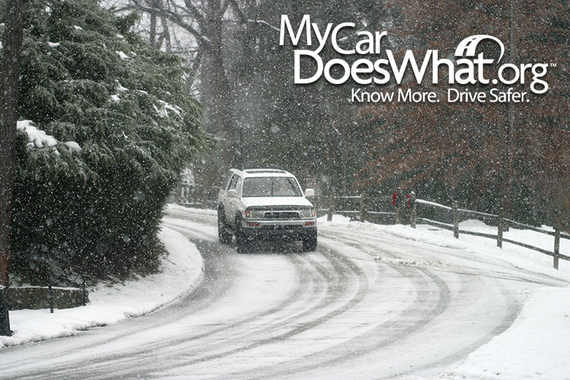In an average February, 21.5 inches of snow falls on Rochester, NY.
Weather service research data tells us totals elsewhere will reach double digits, too. Winter has not moved into your rearview mirror yet. The Federal Highway Administration reports nearly 900 people are killed and nearly 76,000 are injured in vehicle crashes during snowfall or sleet episodes annually on our nation's roadways. In a typical four-month winter period, that comes to more than seven deaths and 633 injuries each day.
During treacherous winter driving conditions, you can stay safe by making use of vehicle technologies standard in almost everything riding on four wheels today, including rental cars.
Winter weather - specifically road icing - is known to kill more than twice as many people every year as tornadoes, hurricanes, lightning and severe thunderstorms combined. The National Highway Traffic Safety Administration says all vehicles handle differently on wet, icy or snowy roads.
Fortunately for all of us, our cars are getting smarter. The National Safety Council and the University of Iowa launched MyCarDoesWhat.org to educate drivers about vehicle safety technologies designed to prevent crashes. Here are a few tips that could help during the winter driving season:
- The anti-lock braking system (ABS) in your car does NOT guarantee you will stop faster. Rather, the ABS system is intended to prevent your wheels from locking up and allow you a better chance to steer to safety.
- Strange as it sounds, the ABS system on your vehicle is working properly if you feel the pedal thumping or pushing back when you apply the brakes.
-Traction control normally is turned off in only two instances: One, if you need to rock your car back and forth when stuck in mud or deep snow; two, if you drive with tire chains in snowy or icy mountainous regions.
While technology can be a game-changer, know that not all vehicle features are created equal. Anything that takes your attention away from driving adds risk - think dashboard infotainment systems, portable electronics and Bluetooth technology. These distractions can be life-threatening any time of the year, but it is especially important to focus during the winter months when so many other variables are prevalent.
Thanks to advancements in seat belts, airbags and crumple zones, driving-related deaths and injuries have dropped. This is all the more remarkable when you consider more cars are on the road and people drive more miles every year. No matter where your travels take you as you navigate through blustery winds, snow and ice, keep safety for yourself and others uppermost in your mind so we can all look forward to warmer days ahead.
Deborah A.P. Hersman is president and CEO of the National Safety Council

